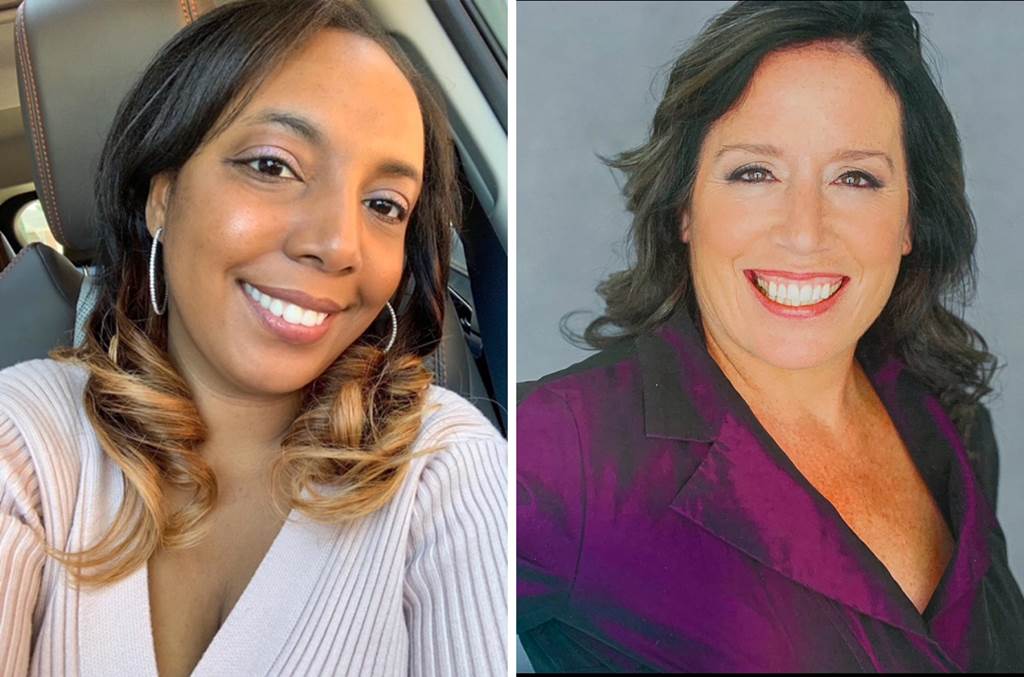Mental Health Awareness Month: High School Counselors Share their Strategies
20 May 2021
These two master high school counselors have devoted their careers to helping students have a positive and productive high school experience.

May is Mental Health Awareness Month! Last week, we introduced you to two elementary school counselors who are making a difference in their school communities by supporting students’ social-emotional growth. This week, we’re sharing tips from two master high school counselors who have devoted their careers to helping students navigate stress and anxiety to have a positive and productive high school experience.
Ms. Andrea Allen-Moore has been a high school counselor since 2004 and currently serves the students of Gage Park High School. One of the most important parts of her role is building relationships with parents to ensure students have the support they need both at school and at home. It’s crucial to her that parents know about the various mental health supports that her school can offer.
“Opening that dialogue with students where they know they can confide in you is important because, as a teenager, you might not always want to talk to your parents about what is bothering you,” she said. “At the same time, talking to parents myself about services that are offered at our school, like our Becoming a Man program or our partnership with Gads Hill, lets them know that we are here to help.”
She is already looking forward to next school year as this one winds down and is brainstorming ways to help students build better relationships and feel even safer at Gage Park in the fall. She’s hoping to introduce more therapeutic programming, such as art activities, as a way of sparking conversation between students and staff about meeting their needs.
Here are some of her tips to support students with mental health:
1. Remember that mental health is extremely important because the mind is the center of everything that happens in your body. If your mental health is in a good place, many other things in the body will be in a good place as well.
2. Limit your time on social media because you might not realize that many of the stressors you may be facing could be coming from it. A few minutes of your day can be spent on social media, but don’t scroll for hours. Use that time to focus on the more important things that are going on in your life.
3. Snacking on fruits and vegetables throughout the day will give you more energy, especially if you are learning from home. Taking 20- to 30-minute breaks from looking at a screen can also help.
Ms. Karen Devine has been a counselor since 2008 and now works at Taft High School, specifically supporting the school’s freshmen and students in its Academic Center. When she reflects on how her school has approached mental health in the past, she feels the culture at Taft has transformed from being reactive to proactive when it comes to supporting students.
“We do a needs assessment every fall for our students and form small groups based on what they tell us they need, whether it is grieving or stress or anger,” she said. “However, that’s not the only way we connect students with resources. If I were to compare us to the medical field, we’re no longer an emergency room. We’re more of a family practice that is here for everyone.”
She’s hopeful that Taft can start reintroducing in-person mental health workshops in the summer and next school year. She believes some of the most impactful activities she’s organized in the past have involved students working directly with their parents, such as one exercise that helped shift parent perspective by having them write a letter to themselves as if they were a teenager.
Here are three strategies she believes all students can benefit from:
1. View mental health as a positive because mental, physical, and academic health are all connected. It’s important to think about mental health as a way of supporting your physical and academic health rather than something that can hinder your academic success.
2. If you’re feeling more stressed or anxious than usual, start by doing things you enjoy. Sit by a window and read a book. Go for a walk. Do arts and crafts. Talk to a friend. If those things don’t help, and you feel like your toolbox has run out of tools, then you should reach out to your counselor who will help refill your toolbox with more ways to support your wellbeing.
3. Remind yourself that you do not need to be having a crisis to connect with your counselor about mental health. Just like we go to the doctor for check-ups, you should feel encouraged to check in with your counselor on a regular basis.
Looking for more mental health resources? Check out this toolkit from the district’s Department of Social-Emotional Learning.
Related Stories
25 April 2025
Taking a Leap of Faith: First-Year AP Shares Her Journey to School Leadership
AP Jordan thrives in leading with compassion and love each and every day.
18 April 2025
Celebrating Mariachi in Music Class: Take Five with Phillip Olazaba
Mr. Olazaba is known for being a caring teacher who has high expectations while still making learning fun.
18 April 2025
Learning All About a Wonderful Special Education Classroom Assistant at Skinner North Classical School
Ms. Boonstra has found a great fit as a special education classroom assistant.
17 April 2025
Introducing Trevor Nicholas: Golden Apple Finalist for Excellence in Teaching
Mr. Nick likes to remind himself that "hurry is often the opposite of love" when teaching music to students as a vehicle for healing.




